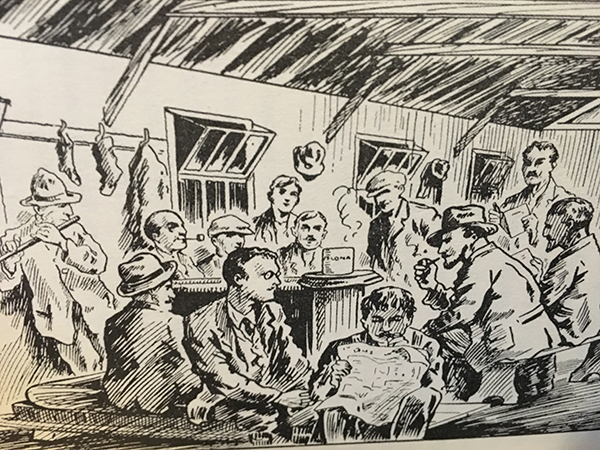
Grace spent time in a number of prisons including in Yorkshire and North Wales. He was one of 1,800 Irish prisoners detained in Frongoch internment camp in North Wales after the Rising. The prisoners lived under harsh conditions and were forced to work in the Frongoch North and South Camps. Grace himself was sentenced to a 14-day solitary confinement after calling an English sergeant a ‘liar’. In response, Grace went on a hunger strike stating that he ‘would never do the fourteen days’. After four days, a doctor warned Grace that he would be forcibly fed. However, Grace was ultimately allowed to leave solitary confinement before the end of the fourteen days.
 |
| Illustration of the recreation inside the huts, from W. J. Brennan-Whitmore’s book With the Irish in Frongoch, first published in 1917. |
On Christmas Eve of 1916, Grace was released and returned to Dublin. His release was part of a mass amnesty granted to Irish prisoners connected to the Rising or as it was called in the House of Commons the ‘rebellion’. The mass amnesty was proposed by the government and the motion was made in the House of Commons on 15 June 1917. Most speakers expressed support for the motion and interpreted it as a sign of ‘good will’ that would hopefully facilitate a reconciliation between Britain and Ireland. However, it was noted with contempt by an MP that 40 members of Parliament were not present for the vote.
(MAI, BMH WS 310; UK Parliament, 15 June 1917)